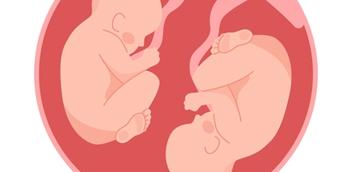
High celiac antibodies linked to low birthweight
Women with high levels of antibodies related to celiac disease are more likely to deliver low birthweight (LBW) babies, according to a large Belgian study published in Gastroenterology.
Women with high levels of antibodies related to celiac disease are more likely to deliver low birthweight (LBW) babies, according to a large Belgian study published in
The findings, by researchers from Erasmus University Medical Center, Rotterdam, were based on analysis of levels of anti-tissue transglutaminase (anti-tTG) in second-trimester serum samples. The antibodies are a marker of celiac disease and the cohort for the population-based prospective study was a group of 7,046 pregnant women.
Among the participants, 6,702 were considered negative for anti-tTG (≤0.79 U/mL), 308 had intermediate levels (0.8 to ≤6 U/mL) of the antibody, and 36 were positive (>6 U/mL) for anti-tTG. Ultrasound measurements and medical records were the source of data on fetal growth and birth outcome in the cohort.
During the second trimester, fetuses of women who were positive for anti-tTG weighed 16 g less than those of women who were negative (95% CI, -32 to -1g). The difference was larger in the third trimester: 74 g (95% CI, -140 to -8 g). A similar trend was seen in birthweights, with newborns of women in the intermediate and positive anti-tTG groups weighing 53 g (95% CI, -106 to -1g) and 159 g (95% CI, -316 to -1 g) less, respectively, than those of women in the anti-tTG group.
The researchers concluded that levels of anti-tTG in pregnant women are inversely associated with fetal growth, with the greatest growth reduction seen in fetuses of women with the highest levels of anti-tTG. Birthweight was also reduced in women with intermediate levels of anti-tTG. Said lead author Jessica Kiefte-de Jong, MSc, “Researchers need to explore the natural history and long-term consequences of intermediate anti-tTG levels to determine if these levels are caused by pregnancy or whether it reflects a subclinical state of celiac disease that needs follow-up.”
Newsletter
Get the latest clinical updates, case studies, and expert commentary in obstetric and gynecologic care. Sign up now to stay informed.









